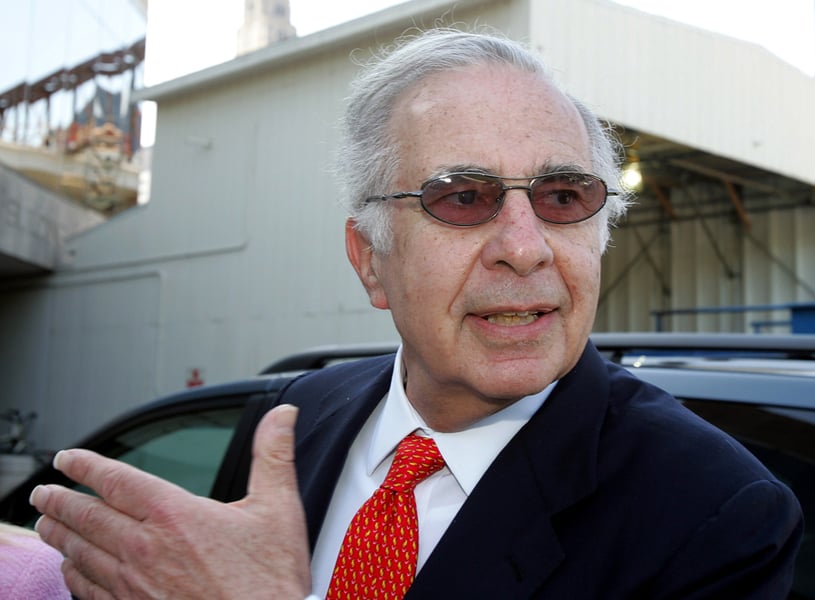

Activist investor Carl Icahn and his firm will pay $2 million to settle SEC charges that he used his ownership for collateral on billions of dollars in personal margin loans without telling other investors.
The Securities and Exchange Commission today announced the settlement, which resulted from an investigation sparked by last year’s bombshell report from short seller Hindenburg Research that alleged inflated valuations and Ponzi-like dividend payments. Icahn is paying $500,000 in civil penalties, while the firm is paying $1.5 million, the SEC stated.
Since at least the end of 2018, Icahn pledged anywhere from 51 percent to 82 percent of the company’s outstanding shares as collateral for such loans, and that practice went undisclosed in its annual report until early 2022, the SEC stated. Further, Icahn did not file appropriate disclosure about his margin loan agreements since at least 2005 until 2023, according to the regulator.
“These disclosures would have revealed that Icahn pledged over half of IEP’s outstanding shares at any given time,” said Osman Nawaz, chief of the SEC Enforcement Division’s Complex Financial Instruments Unit, in an announcement. “Due to both disclosure failures, existing and prospective investors were deprived of required information.”
In comments to InvestmentNews, Icahn and a lawyer representing the firm acknowledged the SEC’s findings and denied Hindenburg’s conclusions.
“After Hindenburg issued a false report to make money on its short position at the expense of ordinary investors, the government investigation that followed has resulted in this settlement which makes no claim IEP or I inflated NAV or engaged in a ‘Ponzi-like’ structure,” Icahn said in a statement. “Hindenburg’s modus operandi, which is to publish scurrilous and unsupported allegations, did damage to IEP and its investors. We are glad to put this matter behind us and will continue to focus on operating the business for the benefit of unit holders.”
Meanwhile, Jonathan Streeter, outside counsel at Dechert, said that the company and Icahn cooperated with the SEC.
“In short, the government found absolutely no fraud and did not find any inflation of IEP’s [net asset value] or impropriety in its dividends. Instead, IEP is settling an unrelated disclosure violation on issues that were reviewed by outside advisors at the time in question,” Streeter said in a statement. “On that, IEP corrected the disclosure violation in February 2022, more than a year before the Hindenburg report and the start of the government investigation. When IEP made that correction, its unit price barely moved, and the market did not react.”
Hindenburg’s report in May 2023 noted that the company was trading at a 218 percent premium to the NAV it calculated for Icahn Enterprises, while other firms led by star managers, such as Third Point and Pershing Squared, traded at discounts. The more than 15 percent annual dividends paid out by Icahn Enterprises was unlike anything else, that report read.
Following the report, the company’s share price plummeted and hasn’t recovered, quickly going from about $50 to $20 and now at less than $16.
The SEC’s claims and the settlement are technical and relatively minor, but the investigation gave the regulator an opportunity to pursue a case against Icahn and the company, said Amy Lynch, president of FrontLine Compliance.
“There is a bigger picture here. The SEC has been interested in the activities of Mr. Icahn for quite some time,” Lynch said.
“It’s kind of a no-brainer as far as how to process the case – they took advantage of what they could.”
Even while the claims and settlement amounts are small for billionaire and his company, firms that have to worry about their reputations may take note, she said.
“This could be a way that the SEC is trying to bring the activists to attention,” she said. “The lesson here is make sure your SEC reporting is accurate and timely, or else you could find yourself faced with these charges.”

By listening for what truly matters and where clients want to make a difference, advisors can avoid politics and help build more personal strategies.

JPMorgan and RBC have also welcomed ex-UBS advisors in Texas, while Steward Partners and SpirePoint make new additions in the Sun Belt.

Counsel representing Lisa Cook argued the president's pattern of publicly blasting the Fed calls the foundation for her firing into question.

The two firms violated the Advisers Act and Reg BI by making misleading statements and failing to disclose conflicts to retail and retirement plan investors, according to the regulator.

Elsewhere, two breakaway teams from Morgan Stanley and Merrill unite to form a $2 billion RIA, while a Texas-based independent merges with a Bay Area advisory practice.
Orion's Tom Wilson on delivering coordinated, high-touch service in a world where returns alone no longer set you apart.
Barely a decade old, registered index-linked annuities have quickly surged in popularity, thanks to their unique blend of protection and growth potential—an appealing option for investors looking to chart a steadier course through today's choppy market waters, says Myles Lambert, Brighthouse Financial.
